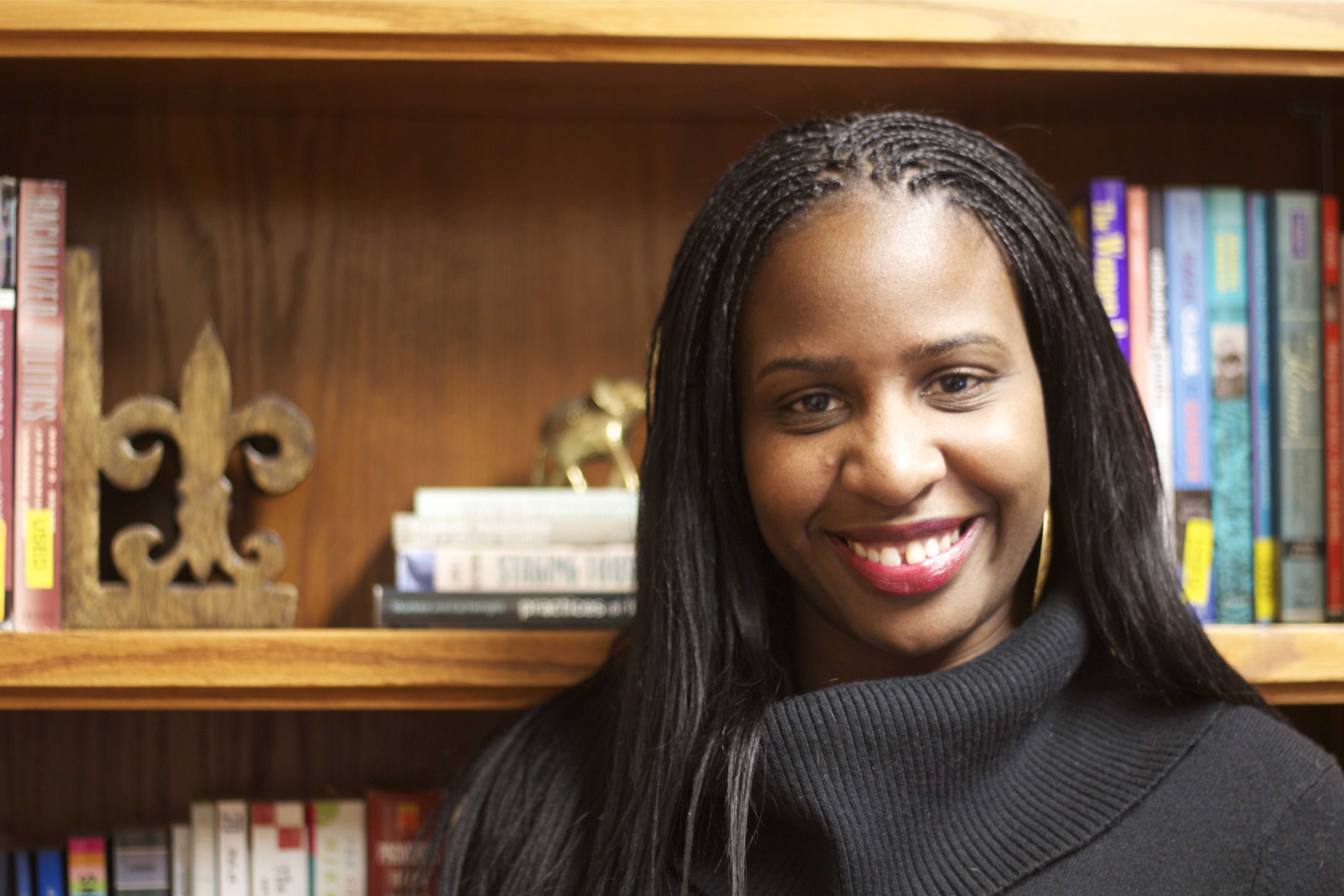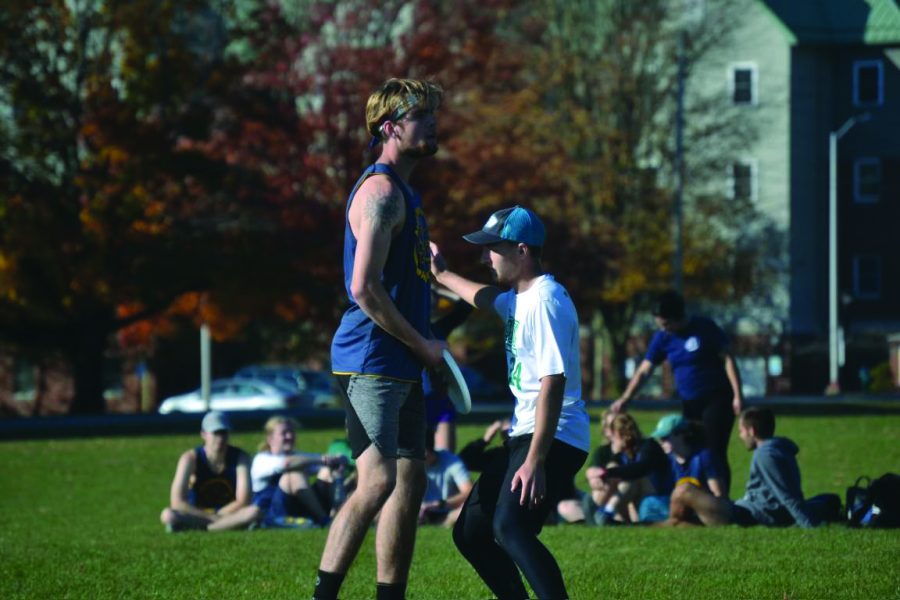If anyone understands the meaning of resilience, it is Marita Gilbert.
Gilbert comes from New Orleans, a city that has sprung back from misfortune more than once.
“Resilience is part of the culture of New Orleans, actually,” Gilbert said. “And it’s something that’s kind of in us. Historically, when people first came to New Orleans it really was a swamp. It was very hard to live there – the climate, the mosquitoes and malaria. You had to be a person with fortitude to really survive there.”
It is a city with heart, an amalgamation of neighborhoods lining the curve of the Mississippi River. And it is the city where Gilbert first came to understand the meaning of turmoil and recovery –of long, cyclical hardships broken by moments of improbable celebration.
When Hurricane Katrina brought the cold waters of the Mississippi into the homes of New Orleans residents in 2005, it marked the beginning of the city’s most recent and poignant hardship. In just a few days of landfall, the storm forever altered the lives of Gilbert and nearly everyone who called New Orleans home.“In every family, there were people who lost everything.” Gilbert said. “And then there were those of us who, like my sister, only lost a few roof tiles. There’s a spectrum. I lost my grandmother, and that’s irreplaceable. That leaves a scar that’s not visible.”
As an academic, Gilbert has since zoomed in on that spectrum of loss and the collective grief and recovery that her city still experiences today.
Gilbert is Allegheny College’s current scholar-in-residence, a dissertation fellow examining the post-Katrina recovery process and how it applies to black women and their ideas of home.

She examines the cultural importance of the New Orleans Saints: how it applies to these women, many of whom are lifelong fans, and how football gives them a hope for revival.
Though Gilbert approaches her work through a focused lens centered upon professional sport, her research highlights something much larger. In particular, it explores the unique inclination New Orleanians seem to have for finding pause in joyous celebration, even in the midst of a tragedy as great as Katrina.
“Football gave New Orleanians a chance to do what we do: celebrate even the bad things that happen to us, through the culture of New Orleans,” Gilbert said.
As a child, Gilbert watched Saints games with her father often.
“Friday evenings we would hang out –go to the tailgates, go to the games. Even as adults, we would still go to the games sometimes,” she said.
After Katrina, tickets to Saints games were selling out within an hour.
“I remember reading the newspaper and seeing that people who literally did not have a home were spending $1,200 on season tickets,” Gilbert said.
Many outsiders have criticized residents for spending money on football tickets in the midst of the large-scale economic crisis that followed Katrina, but Gilbert defends them. She understands their motivations.
“I think people knew that they needed to have some outlet,” Gilbert said. “You weren’t going to stand in line for eight hours at Home Depot for lumber just to try to fix your house and not have some kind of release. I think that’s part of the genius of the people of New Orleans.”
Gilbert believes that the distinctive spirit of New Orleans lies largely within the untold narratives of the city’s people.
For instance, Gilbert recalled a time when she got to watch the jazz trumpeter Kermit Ruffins play music in a sports bar in the Seventh Ward; he cooked a meal for her afterwards and they talked over food. She remembered speaking to the daughter of an elderly woman who had lived just long enough to see the Saints win the Super Bowl, and a woman whose daughter had been the first black cheerleader for the Saints.
“These are narratives that are not widely heard,” said Gilbert.
But this is precisely what Gilbert aims to do now: listen to the often-overlooked stories of regular people in New Orleans. Gilbert is a regular New Orleanian herself, and she carries her own stories with her as she interviews subjects.
“When you’re interviewing, you have to listen for gaps,” said Gilbert. “During the interview process, there were silences, particularly difficult moments when I think the woman didn’t have to necessarily speak … There were things that I could understand because there were some experiences that I had myself.”
As Gilbert was growing up, she said, others would frequently ask if her mother had passed her exams for her, implying that Gilbert could not have achieved her high grades on her own. Gilbert used the momentum of misplaced personal insults like these to pursue great academic accomplishment: two degrees, plus a third currently underway at the University of Michigan.
“You can take a thousand or a million steps from your darkest days,” Gilbert said. “I know, because I felt it.”
As she worked on her thesis, Gilbert spoke to women of all ages –a dancer, a nurse and an entrepreneur, among others –and she believes that each one has taught her something about her home. Right now, Gilbert spends her time trying to teach Allegheny students about New Orleans as well.
Students like Christina Mucci, ’13, who know New Orleans only from secondary sources, look forward to hearing Gilbert’s perspective as a native of the city.
“She’ll show a PBS film on the New Orleans experience, and then she’ll ask, ‘What was missing from this narrative?’” Mucci said. “First of all, the video has just one woman, and it’s a white woman. It’s a whole lot of what you would see in high school: a lot of New Orleans, but it really isn’t a whole.”
Mucci enjoyed learning about the so-called “jazz funerals,” that sometimes take place in the city, where family members march through the streets carrying the casket of a recently deceased loved one, playing music in honor of the dead.
“They didn’t talk about that in the PBS film,” Mucci said. “Things like that are really what [Gilbert] brings to the class.”
When Gilbert returns to New Orleans in upcoming years, as she plans to do, she hopes to find a thriving city with the resilient spirit she remembers.
“If you’ve never been to New Orleans, you should,” she said. “And I don’t mean to go to Bourbon Street. I mean, like spend time going to Tipitina’s, and spend time learning about the history and culture of New Orleans.”
More than anything, Gilbert wants others to see her home in its true light.
“It’s a place that is full of love, and we really do laugh a lot. It will really get you through a lot of things.”






